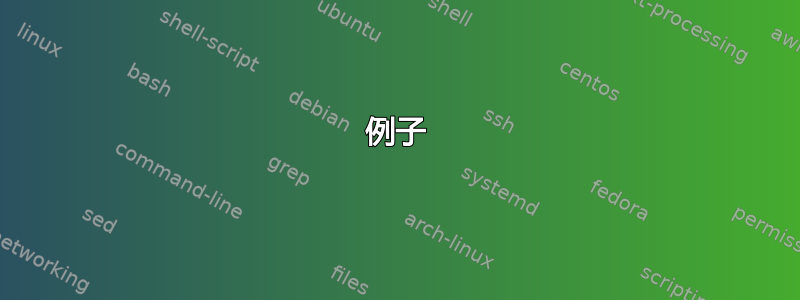
我想编写一些宏,如果前面有指定的宏,其行为会发生变化。具体来说,我有一些控制符号(数学运算符,如 、 等)的宏,\det它们\trace在另一个字段中有对应部分,它们的名称以“super-”为前缀,所以我考虑在超级数学中为超级符号编写 、 等\super\det。\super\trace
这也许也是一个糟糕的想法,但现在我只是想知道它是否可行的。
例子
我正在写一些关于超级数学的笔记,它就像普通数学一样……但是极好的(即 Z2 级)。我们几乎在所有事物前都加上“超级”前缀。
我想要这样的东西:
\documentclass{article}
% ... amsmath packages omitted, but probably needed
% vanilla mathematical operators
\DeclareMathOperator\tr{tr}
\DeclareMathOperator\det{det}
\def\commutator#1#2{[#1, #2]}
% any operator with "\super" preceding it is defined
% to behave according to the declarations within this body
\prefixRedefs{\super}{
\DeclareMathOperator\tr{str} % super trace
\DeclareMathOperator\det{Ber} % super det are called Berezinians
\def\commutator#1#2{[#1, #2\}}
}
\begin{document}
In Linear algebra, we have $\det(A)$, but super linear
algebra has $\super\det(A)$. Supermatrices may be given
a super commutator $\super\commutator{A}{B}$ and we get
a super Lie algebra; just as normal matrices may be given
the commutator $\commutator{A}{B}$ to produce a Lie algebra.
\end{document}
我理想情况下想获得\super\det生产Ber、\super\trace生产str等等,按照前缀环境所指定的方式。
答案1
你可以这样做:
\documentclass{article}
\usepackage{amsmath}
\newcommand{\makesuper}[2]{%
% #1 = \DeclareMathOperator or \newcommand or \DeclareRobustCommand
% #2 = macro name
\expandafter#1\csname super\string#2\endcsname
}
\DeclareRobustCommand{\super}[1]{%
\ifcsname super\string#1\endcsname
\csname super\string#1\expandafter\endcsname
\else
\expandafter\ERROR
\fi
}
\DeclareMathOperator{\tr}{tr}
\newcommand{\commutator}[2]{[#1,#2]}
\makesuper\DeclareMathOperator{\det}{Ber}
\makesuper\DeclareMathOperator{\tr}{str}
\makesuper\newcommand{\commutator}[2]{[#1,#2\}}
\begin{document}
$\det A-\tr A+\commutator{X}{Y}$
$\super\det A-\super\tr A+\super\commutator{X}{Y}$
\super\ddt
\end{document}
最后一个将产生
! Undefined control sequence.
<recently read> \ERROR
l.30 \super\ddt
不要使用\def,即使实际上允许\makesuper。



